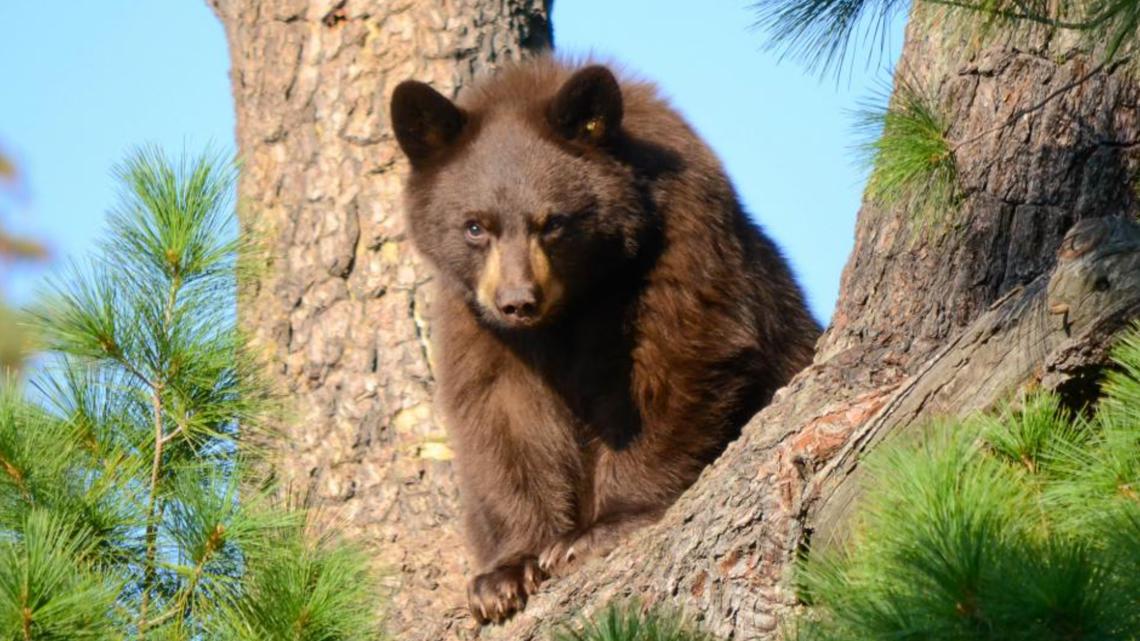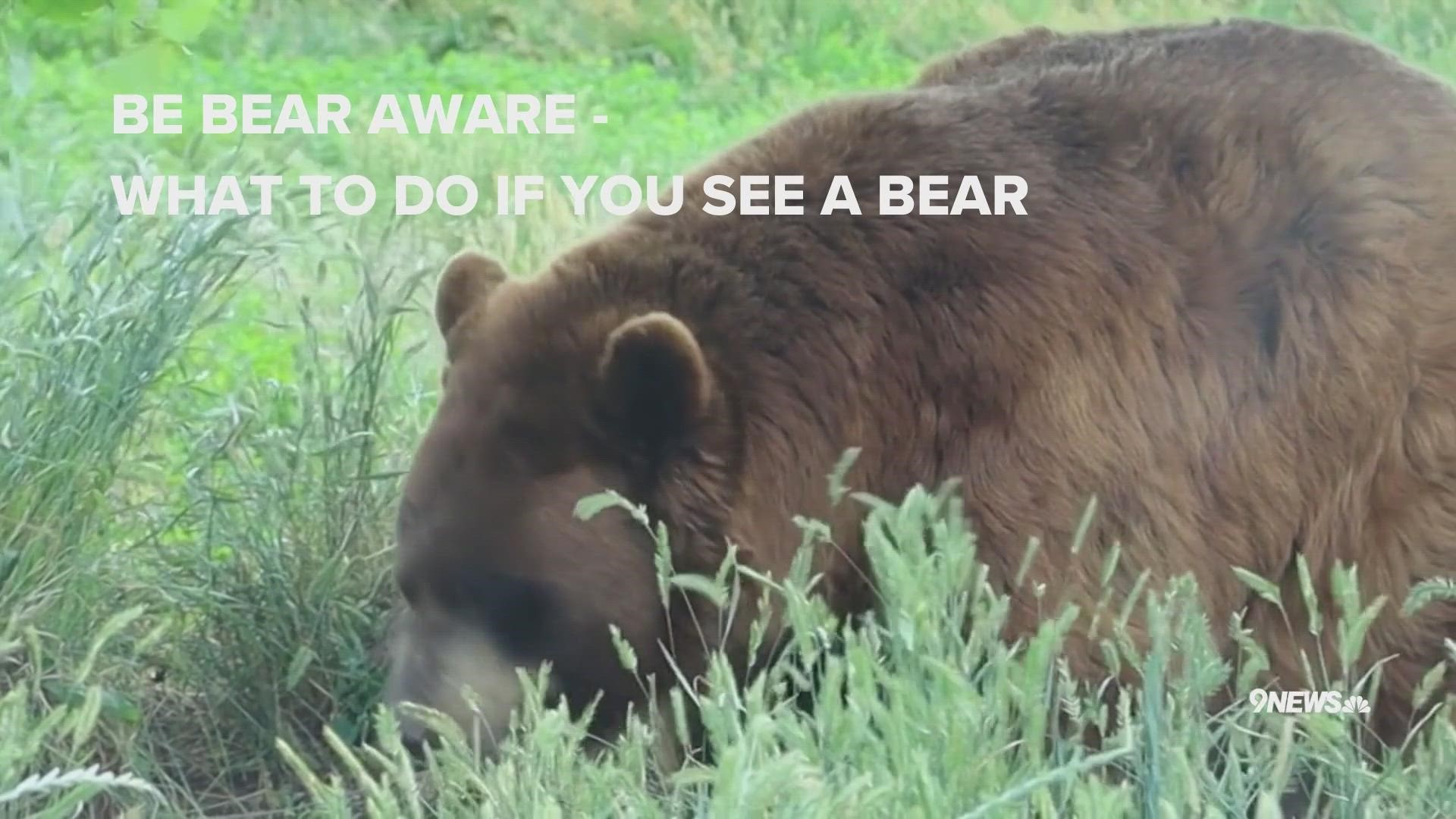DENVER — Colorado Parks and Wildlife (CPW) said bears waking from hibernation are looking for food across Colorado.
CPW has already received several reports of bear activity and wildlife officials are urging residents to secure attractants.
CPW said there were 3,526 reports of sightings and conflicts with bears in 2023. That number is a 21-percent decrease from the average number of reports received from 2019 to 2023.
Trash continues to be the number one source of conflicts between humans and bears.
"Bears should not be eating from trash receptacles, bird feeders or other human-provided food sources around homes or businesses," said a release from CPW.
"Every time a bear gets a treat, a bird feeder, a hummingbird feeder, or trash, it teaches the bear that people mean food," said Matt Yamashita, CPW’s Area Wildlife Manager. "People who think that it’s one time, no big deal, are totally wrong. It is a big deal when you compound that ‘one time’ with how many ‘one timers’ they get from your neighbors, too. It adds up."
Early season natural food sources that are good for a bear’s digestive system are grasses, aspen buds and other vegetative matter that is beginning to sprout. Over 90 percent of a bear’s natural diet is grasses, berries, fruits, nuts and plants, said CPW.
The first bears emerging from their winter dens typically are males followed by females that did not give birth to cubs over winter.
"Their bodies are needing to adjust to the fact that they haven’t consumed anything for sometimes six months," said Mark Vieira, Carnivore and Furbearer Program Manager for CPW.
"So there is this phase that is referred to sometimes as walking hibernation, where they are out on the landscape moving slowly and eating what tends to be more vegetative material that starts to pass through their system to get their bodies ready for early summer food sources. That is when they will move back into the typical omnivore diet that we see bears eating the rest of the year."
Tips to prevent human/bear conflicts
- Keep garbage in a well-secured enclosure.
- Only put out garbage on the morning of pickup; bring empty cans back inside before dark.
- Use a bear-resistant trash can or dumpster. These are available online or from your trash hauler.
- Clean all garbage cans regularly to keep them odor free. The scent of ammonia can deter bears.
- Take down all bird feeders. Bird feeders are a major source of bear/human conflicts. Birds have naturally available food sources during the spring, summer and fall. Don’t let your bird feeder become a bear feeder.
- Don't leave pet food or stock feed outside – never provide food sources for any wildlife.
- Install and test your electric fencing to protect your chicken coops, bee hives or even livestock enclosures.
- Clean all BBQ grills.
- Keep garage doors and windows closed and locked, especially between dusk and dawn.
- Don’t leave attractants such as snacks, food wrappers, gum, or even scented hand lotions in your car; and always lock vehicle doors.
- Use bear boxes or bear-proof containers for food and scented items when camping.
- Don't leave food outside while camping. If bear boxes aren't available, buy your own bear canister or leave all food in the trunk of a locked vehicle as your last resort.
- Buy an air horn or bear spray. These tools are good to have whether for your home or if you go hiking and camping. They can help haze bears away.
- Review CPW’s Bearproofing Your Home Fact Sheet and conduct a home audit to be sure you are not attracting bears to your property.
- Talk to your neighbors and kids about being bear aware.
For more information, visit cpw.state.co.us/bears.
Human-bear conflict reduction grants
CPW is offering $1 million of grant funding for projects that reduce conflicts with bears in Colorado communities through its Human-Bear Conflict Reduction Community Grant Program.
Local governments, NGOs, HOAs, community groups, businesses, tribes, universities and individuals are all eligible to receive funding. Applicants can apply for grants between $50,000 and $500,000.
“Collaboration with local communities is vital to successfully reducing human-bear conflicts and CPW cannot do it alone,” said CPW Grant Manager Travis Long, manager of the Human-Bear Conflict Reduction Community Grant Program. “Without individuals and communities taking some action and following proper guidelines on living with bears, the number of conflicts will not go down. Fortunately, the funding CPW provides can help empower communities to take the proper actions.”
“Colorado is known for our incredible wild spaces and the animals that call our state home. These grants will help support more bear-proof homes and neighborhoods to ensure that people and animals can live together and avoid conflict that impacts humans and animals,” said Colorado Gov. Jared Polis.


> Top stories curated daily just for you! Sign up for the 9NEWSLETTER to get can’t-miss stories, Next and Broncos content, weather and more delivered right to your inbox.
SUGGESTED VIDEOS: Animals and Wildlife
MORE WAYS TO GET 9NEWS
Subscribe to our daily 9NEWSLETTER
Download the 9NEWS APP
iTunes: http://on9news.tv/itunes
Google Play: http://on9news.tv/1lWnC5n
HOW TO ADD THE 9NEWS APP TO YOUR STREAMING DEVICE
ROKU: add the channel from the ROKU store or by searching for KUSA.
For both Apple TV and Fire TV, search for "9news" to find the free app to add to your account. Another option for Fire TV is to have the app delivered directly to your Fire TV through Amazon.

